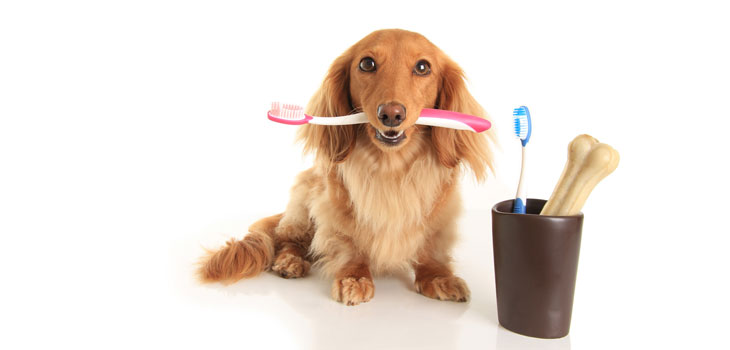Did you know that dogs value dental health as much as their owners? Keep in mind that your dog’s physical and mental health will partly depend on its dental health; dental issues will have an adverse impact on its overall wellness levels. Toothaches caused by bacterial build-up, for example, will result in an irritable, and even sometimes aggressive attitude in your dog.
Fortunately, you have several ways to ensure that your dog will enjoy good dental health. You will also benefit from it since you will enjoy reduced veterinary costs, strengthened bond with your pet, and improved pet ownership, among others.
Perform the Breath Test
While your dog’s breath may not be fresh-smelling, you have to sniff it once in a while. This is because halitosis, or persistent bad breath, can be a sign of an underlying medical condition as well as poor oral hygiene, consumption of unsuitable food items including feces, and infections, among others. Your concern will be warranted, too, when your dog’s persistent bad breath is accompanied by other symptoms including loss of appetite, frequent drinking and urinating, and vomiting, to name a few symptoms.
You should take your dog to its vet as soon as possible. Early detection of the causes behind the halitosis is a must for appropriate treatment.
Give Chew Toys
Your dog has a natural inclination to chew on hard objects especially during the teething stage. Gnawing on chew toys provide a two-fold benefit – first, it contributes to healthy teeth and gums as chewing massages the gums and helps keep the teeth clean (i.e., scrape away soft tartar on the surface); and second, it wards off boredom so your leather shoes, furniture and other personal items are spared your dog’s sharp teeth.
Ask your vet about toxin-free chew toys made from nylon, rubber, and rawhide.
Examine the Lips
Once a week, you have to examine your dog’s lips for signs of possible gum disease. With your dog facing you, lift its lips, closely examine its gums and teeth, and take note of anything unusual since your last examination.
Your dog’s teeth should be clean with no sign s of brownish tartar while its gums should be pink without signs of swelling. In case its gums are either white or red as well as have signs of swelling, you should take your dog to its vet as soon as possible.
Regular Brushing Is a Must
Good oral hygiene, of course, is a must in maintaining good dental health in your dog. Bear in mind that plaque-forming foods can result in bacterial, fungal, and viral infections in your dog’s mouth including its teeth, gums and tongue. Plaque, for example, can harden into tartar that can result in gingivitis, tooth loss, and receding gums.
Brightening your dog’s teeth can be easier with the following tips. First, buy an oral health canine kit for your dog, which should include an especially-designed toothbrush, canine toothpaste, and even canine mouthwash. You should never use oral health products designed for humans on your dog as these items can contain ingredients that will harm your dog’s mouth and stomach.
Second, train your dog in regular brushing of its teeth. Patience is a must as many dogs will not naturally take to brushings for various reasons, such as the inability to tolerate touch on the sensitive gums. You can keep these steps in mind:
- Get your dog accustomed to the idea of brushing its teeth. Start by massaging its lips with your clean finger in a circular motion for 30-60 seconds 1-2 times a day before moving to its teeth and gums.
- Place a bit of canine toothpaste on your dog’s lips until it becomes comfortable with the taste. Experiment with the various flavors available until your dog shows a preference for a specific flavor (e.g., bacon).
- Place a small amount of canine toothpaste on a canine toothbrush and start brushing your dog’s teeth with it.
Observe your dog’s reaction in each step before proceeding to the next step. You should take your cue from your dog especially when it appears to be particularly averse to the process.
When your dog has become accustomed to brushing its teeth, the professional groomers at Petco will have an easier time at effectively cleaning and polishing your dog’s teeth. Professional teeth cleaning is a must for dogs, too, as is the case for their human owners not only for brighter teeth but also because Petco groomers are also more likely to spot possible oral health issues.
You will be alerted about red flags like:
- Excessive drooling
- Bad breath
- Inflamed gums
- Cysts in the mouth including under the tongue
- Tumors in the gums
- Loose, decayed and brittle teeth
- Infections
With good oral health, your dog will be more likely to be more playful and personable since it feels great about itself – and you will be happier for it, too!


